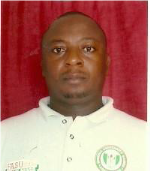FEATURED PAPER
By Kelechi Jude Egbujor, Chinedu Chidinma Nwachukwu, Gregory Chimere Enyinna, Benedict Amade
Federal University of Technology
Owerri, Nigeria
Abstract
The purpose of this study was to develop a quality management model for preventing building project failures in South East Nigeria. A considerable number of building projects within the geopolitical zone have failed in various ways, necessitating this investigation. It was able to determine the extent to which Total Quality Management (TQM) principles are used in the building construction sector of South/East Nigeria to prevent building project failures. This study is based on the theory of structural integrity and failure. Because this is a descriptive study, a purposive selection strategy was employed to pick a sample from the study’s population. Primary data was collected using a 5-point Likert scale and well-structured, pre-tested, validated, and trustworthy questionnaires. Inferences were based on interviews and personal observations. Out of the 100 questionnaires distributed, 92 people returned them well completed, resulting in a 92% response rate. After subjecting the variables used to construct the model to a structured self-interaction matrix (SSIM) using a pair-wise ranking survey, interpretative structural modelling (ISM) was used to design a model of quality management for averting building project failure. The analysis/findings were interpreted, and conclusions were drawn accordingly.
Keywords: Project, Failure, Quality, Management, Building, Construction, Model.
- Introduction
The high percentage of failures in building construction projects demonstrates that for a project to be finished on budget and on time, the nature of the construction process is not as orderly and predictable as it appears. The construction process is a complicated, non-linear, and dynamic phenomenon that can occasionally veer into chaos. As a result, construction projects are more likely to fail than succeed (Emina, Oguzie, & Nkolo 2023). Some practitioners consider a project to be successful if it meets the three legs of the triple constraint: specification, cost, and timing. However, this definition does not fully capture the underlying meaning and elements influencing project success/failure. For example, the Sydney Opera House in Australia is one of the most iconic sights of the contemporary era. However, it cost approximately sixteen times as much to build and took four times as long to complete. The Sydney Opera House in Australia now has immense value and has become the country’s icon, as well as an architectural marvel (Akreim & Suzer 2018). From the standpoint of project management, success involves delivering the project on time, under budget, and with functionality that fulfils the purpose and planned objectives as well as meeting the stakeholders’ expectations. While the project is considered a failure if the completion time exceeds the deadline, there are budget overruns, and the results do not meet the company’s performance requirements or stakeholder expectations. Higher costs and delays might be okay if the stakeholders are happy with the results, showing that what counts as success or failure can change from one project to another based on the people involved, the project’s goals, its size, technology used, and other factors. As a result, project managers and researchers must obtain a more profound understanding of the success and failure of construction projects, as well as identify all of the factors that may work against project success and contribute to failure. Lastly, establish specific criteria to evaluate the success or failure of specific projects. A quality management model for preventing building project failure due to improper building design, poor building material quality, unprofessionalism, management strategies, and so on is a highly important area of research in Nigeria’s building construction sector (Chendo & Obi 2015). The objective of this study is to establish the algorithm of quality management in preventing failure of building projects.
- Literature Review
2.1 Theory of Structural Integrity and Failure
The theory of structural integrity and failure is concerned with a structure’s ability to hold a structural load (weight) without collapsing, as well as the study of previous unsuccessful projects to avoid failures in future designs. Alan Arnold Griffith proposed this theory in the 1920s.
More…
To read entire paper, click here
How to cite this work: Egbujor, K. J., Nwachukwu, C. C., Enyinna, G. C. Amade, B. (2025). Quality management model for preventing building project failure, PM World Journal, Vol. XIV, Issue VI, June. Available online at https://pmworldlibrary.net/wp-content/uploads/2025/06/pmwj153-Jun2025-Egbujor-et-al-Quality-management-model-for-preventing-building-project-failure-2.pdf
About the Authors

Kelechi Jude Egbujor, MSc
Federal University of Technology
Owerri, Nigeria
![]()
Engr. Kelechi Jude Egbujor is a Deputy Director, System Programmer/Analyst at Alvan Ikoku Federal University of Education, Owerri. He has a B.Eng in Electrical Electronic Engineering and an M.Sc in Project Management Technology from Federal University of Technology, Owerri. He just concluded his doctorate degree in the same department. He is a member of the Nigerian Institute of Management, Nigerian Computer Society, Nigerian Society of Engineers and also certified by COREN and TRCN. He can be reached at kelechiegbujor82@gmail.com

Chinedu Chidinma Nwachukwu, PhD
Federal University of Technology
Owerri, Nigeria
![]()
Prof. Chinedum Chidinma Nwachukwu is a Professor in the Department of Project Management Technology, Federal University of Technology, Owerri. He has a BSc in Estate Management from Enugu State University of Science and Technology. He also has an M.Sc and Ph.D in Project Management Technology from Federal University of Technology, Owerri. He is a registered Estate Surveyor, an associate member of the Nigerian Institute of Estate Surveyors and Valuers and a member of the Project Management Institute (PMI). He is also a Fellow of the Institute of Corporate Resource Management. He can be reached at nedumchisma2@gmail.com

Gregory Chimere Enyinna, PhD
Federal University of Technology
Owerri, Nigeria
![]()
Dr. Gregory Chimere Enyinna is a Senior Lecturer at the Department of Project Management Technology, and Currently the Head of Department, Project Management Technology, Federal University of Technology, Owerri. He studied BSc in Geography and Planning and an M.Sc in Environmental Management from Abia State University. He studied his Ph.D in Germany. He is a Fellow of Institute of Management Consulting and the Institute of Policy Management Developers. He is a Resource Person at the World Bank Centre of Excellence in the Federal University of Technology, Owerri.
He can be reached at pycongregco@gmail.com

Benedict Amade, PhD
Federal University of Technology
Owerri, Nigeria
![]()
Dr. Benedict Amade is a Chartered Project Manager by Profession and a Probationer (Member) of Nigerian Institute of Quantity Surveyors (NIQS). He read and obtained a PhD (Doctor of Philosophy) Degree in Project Management Technology from the Federal University of Technology, Owerri, Nigeria. He is a member of the Project Management Institute (PMI) U.S.A. and presently the Deputy Director, Centre for Research Innovation and Development (CRID) and a Senior Lecturer in the Department of Project Management Technology of the Federal University of Technology, Owerri, Nigeria where he has been lecturing for the past 15 years. His areas of research interest include construction project management, computer-based project management, construction supply chain management and information technology on construction projects. He has authored over 60 scientific publications in international refereed journals indexed in Scopus, Web of Science, Scimago etc. He has presented quality papers at international conferences both home and abroad. He is actively involved in other consultancy works. He can be reached at https://orcid.org/0000-0003-3368-5432; benedictamade@yahoo.com; benedictamade@futo.edu.ng; benedictamade2@gmail.com.









